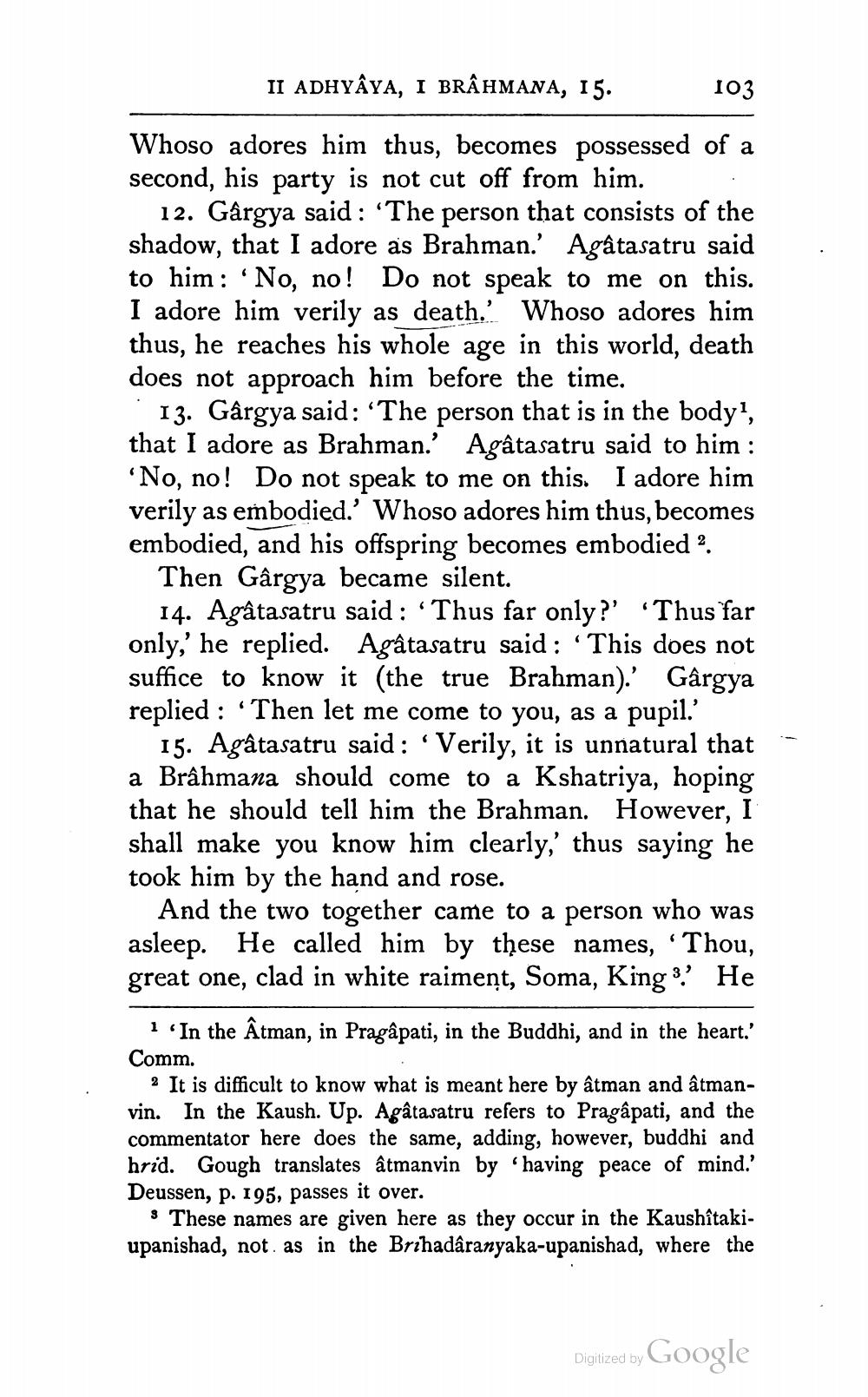________________
II ADHYAYA, I BRÂHMANA, 15.
103
Whoso adores him thus, becomes possessed of a second, his party is not cut off from him.
12. Gârgya said: The person that consists of the shadow, that I adore as Brahman.' Agatasatru said to him: 'No, no! Do not speak to me on this. I adore him verily as death.' Whoso adores him thus, he reaches his whole age in this world, death does not approach him before the time.
13. Gârgya said: “The person that is in the body!, that I adore as Brahman.' Agâtasatru said to him : 'No, no! Do not speak to me on this. I adore him verily as embodied.' Whoso adores him thus, becomes embodied, and his offspring becomes embodied 2.
Then Gârgya became silent.
14. Agâtasatru said: “Thus far only?' 'Thus far only,' he replied. Agâtasatru said: 'This does not suffice to know it (the true Brahman).' Gârgya replied : ‘Then let me come to you, as a pupil.'
15. Agâtasatru said : Verily, it is unnatural that a Brâhmana should come to a Kshatriya, hoping that he should tell him the Brahman. However, I shall make you know him clearly,' thus saying he took him by the hand and rose.
And the two together came to a person who was asleep. He called him by these names, 'Thou, great one, clad in white raiment, Soma, King 3' He
1 In the Âtman, in Pragậpati, in the Buddhi, and in the heart.' Comm.
? It is difficult to know what is meant here by âtman and âtmanvin. In the Kaush. Up. Agâtasatru refers to Pragâpati, and the commentator here does the same, adding, however, buddhi and hrid. Gough translates âtmanvin by 'having peace of mind.' Deussen, p. 195, passes it over.
* These names are given here as they occur in the Kaushîtakiupanishad, not. as in the Brihadaranyaka-upanishad, where the
Digitized by Google




